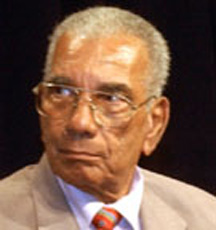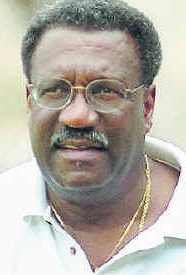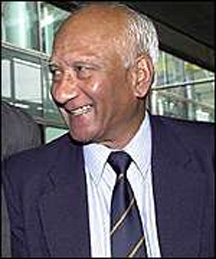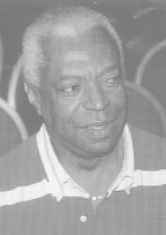Way back in March 1992, a local newspaper had called for changes to be made to the organisation of sports in Guyana.
Among the call was the suggestion that past cricketing maestros such as Clive Lloyd and Rohan Kanhai, come to Guyana and undertake talent spotting among our youths.

The columnist warned against the Bourda Sward deteriorating into a fish pond for the cultivation of patwas and tilapias for Guyanese to consume as part of their meals.

Needless to say, to a great extent, those pleas appear to have made unwanted music to the hard of hearing or the deaf sports administrators’ – government or otherwise.
It is perhaps timely to inform the young, the uninformed, and the many who have forgotten, that Guyana, called British Guiana before Independence, was an ever struggling cricketing nation.
Often, its talented players were from the privileged class, and were made up more or less, sons of the upper class whose parents came to these parts as Civil Servants and positions of that nature.
Since those days, cricket in Guyana has progressed in many ways.
Indeed, coaches from the Sports Ministry have spotted and have helped to develop the talent so abundant among our young people.

One such coach was former leg-spinner, Rex Collymore.
One of the many cricket stars brought to the fore by Collymore was Carl Hooper, former West Indies and Guyana skipper.
But, there is another Caribbean icon that played a much greater role in the development of Guyana’s cricket.
Many of us have grown up to know of the three “W”s, Weekes, Walcott and Worrell, who took the cricket field by storm in the years and after the famous World War Two. They were all from Barbados and had made their mark there. School cricket on that island was a big thing and Sir Clyde Walcott and Worrell were known to have established a partnership that topped the 500 mark against Trinidad and Tobago.
It stands to reason why Barbados is considered by many to be the nursery of West Indies cricket.
Weekes remained in Barbados, and Sobers, Hall, Griffith, Hunte, Bynoe and Nurse were among the players that came to be known in West Indies cricket during this period.
As for Guyana, names like Kanhai, Butcher and Solomon might not even been known but for the presence and intervention of Clyde Leopold Walcott who left his native Barbados to live and work in the then British Guiana.

Walcott forsook the glories of the arm chair of the Bourda pavilion and took long treks into the country side in search of the talents which were to bring Guyana and the West Indies success.
Kanhai, Butcher and Solomon will never forget the long wait outside the New Amsterdam cinema for the first meeting with Walcott. The real moment had come and they soon became acquainted with the great man himself.
They warmly shook hands with the man who was to become the new skipper of the colony’s cricket team. Can they forget the moment? One is certain they have not, that they still remember the glorious moment when he pressed some dollars into the palms of their hands, and finally, wended his way into the cinema to enjoy the show.
In the search for talent, Walcott did not find batsmen alone. Already, inspired by the West Indies spin of (Sonny) Ramadhin and (Alf) Valentine; he looked into the crystal ball and behold, came up with the name of a right-handed, off-spinner named Lance Gibbs and a left-handed, leg spinner, Ivan Madray. In his talent spotting exercise, Walcott led the British Guiana team to its highest total to date of 601 for five declared. The game was closely watched by the selectors.
Bruce Pairaudeau had made his 111 and Kanhai chipped in with his 129. It was certainly good news for the Guyana lads when Butcher recorded 154 not out and Joe Solomon recorded 114 not out.

The late Calypsonian, King Fighter made no secret of the feat in his calypso. Those Berbicians “bad, bad, bad; hitting the ball like if they mad.”
Of course, he urged on the selectors in his song for them to take note. He did not hide the fact that popular West Indies batsman, Allan Rae, was the Jamaican captain and that for three days, they baked under the steam of the Guianese battering. Despite the efforts of Collie Smith and A.P. Binns, who both scored centuries, Jamaica only mustered over 400.
Down the corridors of time, the truth remains. The talent possessed by the players, spotted and developed by Walcott, Robert Christiani and others remain. The onus is now on those responsible for spotting talents – not cricket alone – and those responsible for the grounds, particularly in rural Guyana, do nothing short of their best to bring such talents forward from there they are lodged on the back burner.





